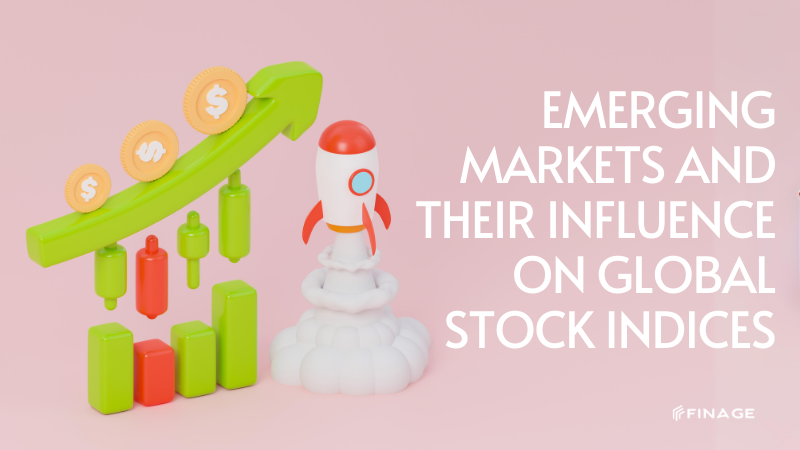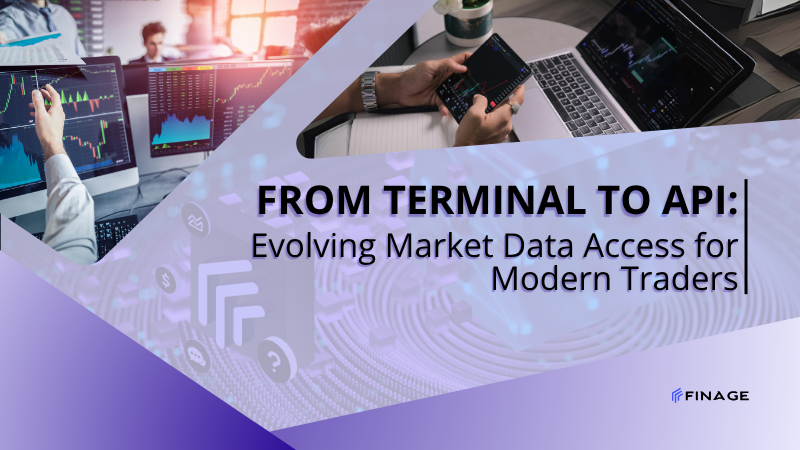Emerging Markets and Their Influence on Global Stock Indices
4 min read • April 17, 2024

Introduction
The number of countries showing potential for economic growth is increasing. These are mostly from developing countries. It gradually becomes connected with the global economy if growth is consistent. All this leads to increased investment from foreign companies creating room for further growth. Examples of markets to watch out for include China, Saudi Arabia, and India.
These are economies that are growing to become more modern and prominent on a global scale. The standard of living is increasing as well. What makes them popular among investors is their rapid growth. It is easier for investors to get high returns when learning more about indices. So what are some of the changes you can expect when looking at emerging markets on stocks?
Contents:
- Impact on stock markets
- High investment opportunities
- Portfolio diversification
- Volatility
- Economic growth
- Higher GDP
- Final thoughts
Impact on stock markets
So what qualifies as an emerging market? An economy should have the following features:
- Shows economic growth in the last 5 years
- Great debt market
- Offers liquidity
- Open to foreign investors
- Has a reliable regulations program
As the leading emerging markets grow, they start affecting stocks across the world. Here are some changes you can expect to see. Governments of these markets tend to relax certain policies to encourage investors.
High investment opportunities
Countries such as Thailand and Singapore are attractive to many investors. That is because they offer many opportunities. Many stocks are directed toward industrial développement as opposed to agriculture. This has led to a surge in the number of foreign companies such as construction.
They are attractive due to the high returns. For industrialization to occur, it requires pouring a large amount of funds, mostly from external sources. These countries rely on exports to boost their GDP. This also increases the value of stocks as the number of exports goes higher. It is important to also look at some risks that you may encounter when investing in an emerging market.
Portfolio diversification
Integration plays a huge role in the future of trading. With emerging markets, traders can have a wider portfolio. There is a broader range of assets and stocks to invest in, both local and foreign. Also, you won't have only one area of focus as there are several options available including:
- Real estate
- Technology
- Telecommunication
- Energy
These are all fast-growing sectors that provide more opportunities for investors. Since these two are separate, it is an effective strategy against volatility. If one performs poorly the other may perform well. This helps to reduce the risk of incurring significant losses.
Volatility
Whenever a market offers high returns, it is also likely to be volatile. This can be the case for many emerging markets, especially when there is world economic instability. This will lead to fluctuations in the currency affecting Forex.
When the value of a currency starts dropping, it will discourage further investment. Other factors that can promote market volatility include:
- Change in export/import policies
- Scarcity of natural resources
- Change in governments and so on
An example, we can see today the economic growth and recessions that have gone in different countries till the end of 2022. Also, we can see there the reductions in the price of the leading industrial and emerging areas within particular countries, for example, reduction of the returns on investments.
Economic growth
To ensure success and continued growth, governments of EMs typically come up with policies that support these goals. This is mostly centered around the industrialization of the country. By doing this, it encourages foreign investments. This leads to:
- Better infrastructure
- Higher employment rates
- Higher GDP
All these will create a cycle that keeps bringing in more international businesses. As these changes, it capture the attention of other markets that have already experienced industrialization. These tend to have slower but steady economic growth. Anyone looking for a new, fast, and promising product will look towards EM.
Higher GDP
Developing countries tend to have a lower GDP. That is mostly because there is an agricultural base. As the shift starts Turning towards industrialization, the income per Capita starts showing an upward trend. The incomes that increase are also a proponent of growth. As the economy grows so will the number of foreign investors.
Final thoughts
Upcoming economies are an area of interest for many investors. It offers high returns due to its rapidly growing nature. This asset is also low cost encouraging purchase. Investors looking for new opportunities or a diversified portfolio can invest in this sector.
Stay up to date with the latest data on emerging markets. It helps you know where to invest and get the best returns. So keep your eyes open for which areas to invest in. Also, keep in mind the risks that may occur as the economy changes or due to political events. These will play a role in the value of the local currency. Have the best solution, charts, and tools for improved experience!
You can get your CFDs Indices Market Data with an Index API key.
Build with us today!
Claim Your Free API Key Today
Access stock, forex and crypto market data with a free API key—no credit card required.

Stay Informed, Stay Ahead
Finage Blog: Data-Driven Insights & Ideas
Discover company news, announcements, updates, guides and more


